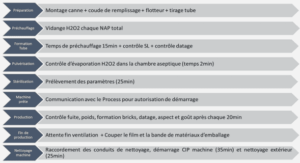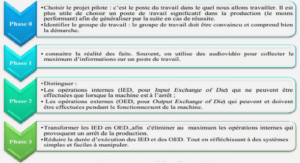PROMOTING NATIONAL LANGUAGES AS OFFICIAL
LANGUAGES
INTRODUCTION
Senegal like many other countries in the world and particularly in Africa is confronted with complex linguistic situation showing the country multifaceted socio-demographic and linguistic make-up of its population. This complex linguistic situation has created a numerous linguistic challenges and a great desire to change the status of the languages for applied linguistics, languages planning, language policy, decision makers, NGOs and any other person who is interested in language matters in Senegal. This part introduces our dissertation which deals with the language planning and language policy in Senegal. The complete title of this dissertation is promoting national languages as official languages in Senegal: challenges and possible solutions. In this part we will define the topic, give the context and the justification of the topic and then we will move to the statement of the topic and the last section of this part describes the outline of the dissertation.
The definition of the topic
This dissertation falls within the field of applied linguistics particularly in the area of language planning and language policy. The principal concern of this dissertation is to find out the difficulties which prevent the establishment of some the national languages as official languages, the challenges that are making the decision-makers more and more afraid to handle a concise language planning and furthermore we will suggest some solutions that might help to establish one of the national into an official language and to define a language planning and language policy that takes into account the different languages and precise their role in the country It mainly deals with national languages status in the country and the way which the government and/or the decisionmakers should take to promote and to improve on the national languages. It addresses also the importance people have towards languages and attitudes towards language planning in Senegal.
Context and justification
The question of national languages has ever been my personal concern. Speaking my mother tongue, defending it is like a religious belief to me. Once again language learning is gaining more and more interest in the world and particularly in our country, Senegal. Today more than six foreign Promoting National Languages as Official Languages in Senegal: challenges and possible solutions 2 languages are taught in Senegal; we name them international languages or languages of wider communication. In such a case it seems to be very important to review the status of our own languages, our national languages. Another important reason which leads us to write in this domain is that the place that the mother tongues or the national languages should take and play in a person‟s life or in a community is of great importance. Language planning as a new subject deserve an important place in every country may it be monolingual or multilingual.
Statement of the topic
Located in the Far West of the African continent, Senegal is a multilingual country where many ethnic groups are found. In other words we can say that Senegal is the meeting point of many civilisations such as the Negro African, the Arabo-Muslim and the western civilisations. Therefore the language planning of the country is very difficult to handle due to the ethnically and linguistically diversity of its inhabitants associated the bulky foreign languages which are studied at school. At the top we have French. Since independence to this day French is the only official language being used in the administrative affairs, the courts, the education system as a subject and a language of instruction of all the other subjects, the international relations and many other domains and situations. French coexists with other foreign languages in the education system such as Arabic, English, Portuguese, Russian, Spanish and so on so forth…The National Languages are mainly used in informal situations but they play important functions in the country such as social interaction, economic and political purposes. The Senegal‟s linguistic situation, like many African countries, is very complex due to the diversity of indigenous languages and as a result the language policy of the successive governments since independence has not been clearly defined and has been in favour of the French language. Sometimes this is an imitation of the colonial ruler and otherwise our leaders do not really consider our languages as good levels of development. The NLs lack real policies to promote them at national and international levels, and to solve the much discrimination done towards them. The NLs need real policies to be fully introduced in the education system and any other domain where the French language is used. For such a change the government and nationalists and the NGOs should gather their efforts to bring new transformations in language policy for the NLs and at a final state establish one of these as the country‟s Official Language (OL). It is in that context that Promoting National Languages as Official Languages in Senegal: challenges and possible solutions 3 the place of the National language is questioned. Time is up that our National Language found their real place our country like many multilingual countries. Our topic, Promoting National Languages as Official Languages in Senegal: challenges and possible solutions, tries to study the possibility of giving one of the NLs the status of OL of the country. The complex linguistic situation as many other problems which can block such a great project are borne in mind throughout the topic. Firstly, we will point out the challenges and then we will try to propose some solutions which can help to make it.
Outline
This part deals with the organisation of the dissertation which is divided into five chapters. The first chapter introduces the dissertation. It provides the definition of the dissertation, the context and justification. The second chapter deals with organisation of the research. It is composed of the theoretical and conceptual framework, the critical literary review on the language planning and policy of Senegal especially the case of the National Languages its value, situation and attempts done to promote them. The chapter also includes research questioning, hypothesis and objectives and finally the methodology research which provides the data collection and the data treatment. It discusses how the research is conducted, the stages of the research, the data collecting tools and the population addressed. The population identified for the purposes of the research is composed of the general population, the students, and the teachers. The third chapter presents the sociolinguistic situation of the country from the geographical and population point to the linguistic point. This chapter is also an overview of language planning and language policy. It provides an insight of the history of the language planning and language policy from the pre-colonial period to the post-colonial era. The fourth and fifth chapters go to gist of the dissertation which is the challenges and the possible solutions of introducing one of the National Languages into an official language with French. The fourth chapter deals with the challenges that decision-makers are facing to bring in one National Language into an official language and the fifth chapter suggests some ways to follow to state a national as an official language. The last chapter, chapter six, concludes the dissertation. Promoting National Languages as Official Languages in Senegal: challenges and possible solutions This chapter addresses how the research is organised to achieve our objectives. It consists of four parts. The first part deals with theoretical and conceptual framework then the literature review which focuses on the literature produced in the field of LPLP and the different theories of language planning. The third part discusses our hypothesis and the objectives which we intend to find out in this dissertation. The fourth and last part of this chapter is the methodological approach. It analyses the different stages of the field work. The first step of the methodological approach is the data collecting. The data collecting is carried out in different ways from libraries to field research. The second step of the research is the data treatment which will lead us to state rules and give solutions and/or propositions
Theoretical and conceptual frameworks
Theoretical framework
The framework of language planning and policy is developing for decades by incorporating ideas from various disciples, particularly from sociolinguistics and applied linguistics. Language planners made enormous achievements through models of language planning based on problem identification, agenda setting, policy formulation, implementation or evaluation. On the basis of this framework, our study is grounded on models of corpus planning and status planning. In other words the study tries to address issues of language planning and language development, language challenges and language choice in a multilingual country. The dissertation will study the challenges which make the obstacles of the implementation of one of Senegalese national languages into a co-official language with French and then further states some solutions or recommendations for the choice of a national official language and language distribution at different levels of the administrative level.
Conceptual framework
Any work in the study on language planning should attempt to define the technical terms used in that field. In this part we will define some of the technical terms of sociolinguistics used in this dissertation. Promoting National Languages as Official Languages in Senegal: challenges and possible solutions 5 First of all let us make an abstract of linguistics. Linguistics is a science that study language. The scope of linguistics is very wide. Many branches may be distinguished according to the focus and interest of the linguist. Diachronic and synchronic linguistics respectively refer to the study of language change through time (historical linguistics) and the study of the state of language at a given time. We have also general linguistics (theoretical linguistics), descriptive linguistics, contrastive linguistics, comparative linguistics, structural linguistics, and sociolinguistics…, just to name a few. Sociolinguistics is a branch of linguistics that studies all the aspects of the relationship between language and society. Sociolinguistics investigates the social meaning of the language system or the language use and the common set of linguistic and social structure. According to David Crystal “Sociolinguists study such matters as the linguistic identity of social groups, social attitudes to language, standard and non-standard forms of language, the patterns and needs of national language use, social varieties and levels of language, the social basis of multilingualism, and so on.” Language planning and language policy: the two terms are sometimes mingled or defined as the same. We will oppose two kinds of definitions given to language planning and language policy in further chapters. The former, also called corpus planning, designs (according some authors) all the work done to develop a language or a variety of language, to provide it the means for serving every possible language function in a society. Corpus planning involves such matters as the development of a vocabulary, orthography, dictionaries and literature. In a word in language planning the emphasis may be placed on the transcription of the previously unwritten languages; the modernisation of the language system by expanding vocabulary with specialised terminology and the expansion of the regional use of the language. And the latter is called status planning. It changes the function of a language or a variety of a language. We can say that the status planning is the implementation of a corpus planning by a government or the decision makers. As says Hadumod Bussmann (1996), language policy is “ Political measures aimed at introducing, implementing, and defining the regional use of languages, such as the use of individual languages in multilingual states ( language planning), the acceptance of official languages and working languages in international organizations, and regulations and agreements about foreign-language instruction Language: In linguistics, the ambiguity of the term language (to be understood as „language,‟ „linguistic competence,‟ and „individual language‟) is differentiated and clarified depending on the given theoretical concept and interest through abstraction and delimitation of sub aspects. Vernacular: The vernacular is the language or dialect that is most widely spoken by ordinary people in a region or country.
Acknowledgements |






